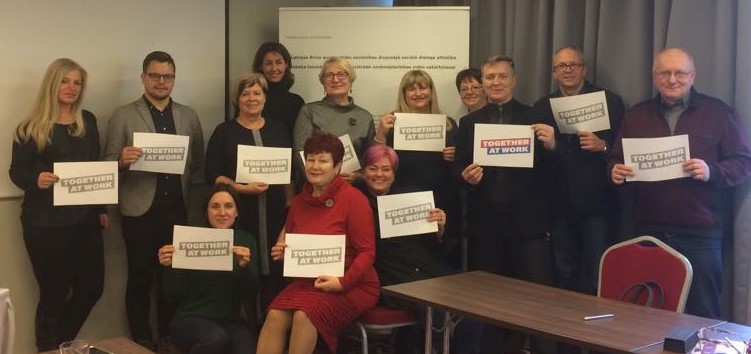Lithuania: Building Collective Bargaining in the Baltic
According to the latest statistics, collective agreements in Lithuania “cover” less than 10%. However, at the end of 2019, a national collective agreement in the public sector was signed, so the coverage of collective agreements increased, reaching around 40%.
Creating social dialogue in Lithuania is not a new idea. Political and financial instruments to strengthen social dialogue have been in place since joining EU. Commitment to social dialogue is flowing in all government programs, party electoral promises and future development strategies, such as Lithuania 2030, even through periodic national agreements. Unfortunately, they are completely barren, and we have not advanced to the level we were 15 years ago.
Employers in Lithuania have for a long time been less motivated to engage in social dialogue, especially at a higher level than the company.
Two aspects are important here.
First of all, employers have never had what can be called forced motivation stemming from strong unions or the state. Such motivation created a strong social dialogue in the West in the end of 19th century and the beginning of 20th century. In Lithuania, as in other Eastern European countries, the influence of business on forming and changing labor relations and social security institutions is relatively large, and the state's ability to enforce its rules is limited. A good example of this is the previous tight regulation of labor relations, which in reality was far from rigid because it was weakly enforced. In addition, the need for foreign direct investment creates constant pressure to increase business autonomy from state regulation.
Secondly, employers have not had voluntary motivation for a long time. What social dialogue brings to employees is something we understand. Strengthening social dialogue focuses on employee benefits. When we think of social dialogue, we usually think of it as an instrument of social policy. However, the need for social dialogue is less clear to employers. Obviously, in the Lithuanian context, if we do not want to talk about opportunities for developing social dialogue, we will not go without more voluntary motivation from employers, and the answer to the question "what is the benefit of social dialogue to employers?" is one of the most important.

Trade unionists supporting the campaign from Lithuania as well as Latvia and Estonia.